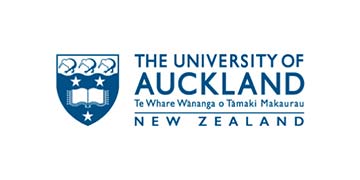University of Auckland: University signs MOU with Watercare
Having worked closely on a range of projects for a number of years, including student internships, education, research and innovation, the two institutions have formalised their working relationships with the signing of the collaboration agreement.
Professor Kobus van Zyl holds the Watercare Chair in Infrastructure at Waipapa Taumata Rau, University of Auckland. He said that cooperating on matters of mutual interest offered many benefits and the MOU was building on existing relationships.
“There is a growing awareness of the importance of collaboration between universities and infrastructure providers, and the ways in which their respective strengths can be combined to create synergies.,” he said.
“Management of the three waters is one of the crucial issues facing this city and in fact most cities around the world. By combining data, skills, and research we can make a significant contribution together”,
Professor van Zyl said that the shared areas of interest also went beyond research and innovation.
“Both organisations are aware of the key role that engineering plays in serving the wider community and aspire to build a more diverse industry – including encouraging Māori, Pacific, and women into the workforce.”
It is no coincidence that the most globally impactful water utilities also have strong collaborations with their local universities, as this advances research and innovation and also creates and attracts a skilled workforce
Apra Boyle Gotla, Head of Innovation
Watercare Services
Apra Boyle Gotla, Head of Innovation, believes that the Watercare and University alliance will provide real and sustainable benefits.
“It is no coincidence that the most globally impactful water utilities also happen to have strong collaborations with their local universities, as this advances research and innovation and also creates and attracts a skilled workforce,” she said.
“This ultimately feeds into longer term, systemic and transformational benefits for the wider Auckland region and New Zealand.”
The two organisations have been working together since the early 1990s, with collaborative activities increasing substantially over the past three years. These include Watercare engineers presenting guest lectures, sharing of data and test samples, honorary appointments and co-authored conference presentations and journal papers.
“Watercare’s data and samples allow our students to work on real-life problems, while often providing useful results to Watercare in return,” said Professor van Zyl, “Currently there are 21 students at PhD, Masters and undergraduate levels working on collaborative research projects.
“Recently the university helped Watercare identify a suitable student for their Ara Tātaki Engineering Pathway Scholarship, allowing the recipient to work on the Watercare Central Interceptor project.
The MOU is championed by a Steering Group comprising high-level representatives of both the University and Watercare, with regular reporting ensuring the partnership is on course on its agreed principles to serve the public good and find solutions to the infrastructure challenges of the 21st century.

